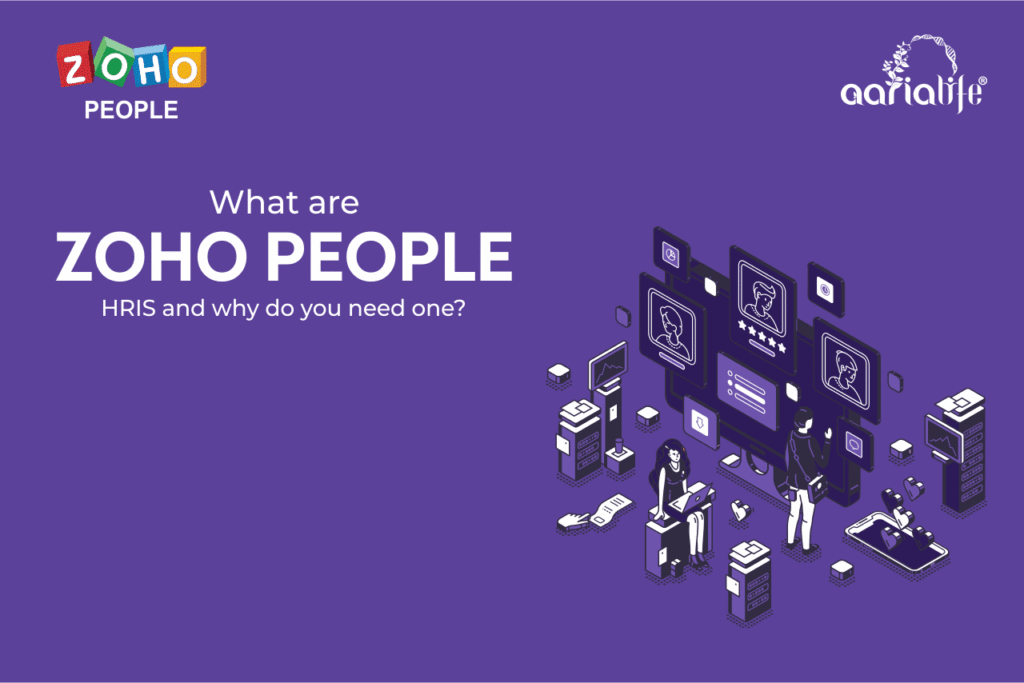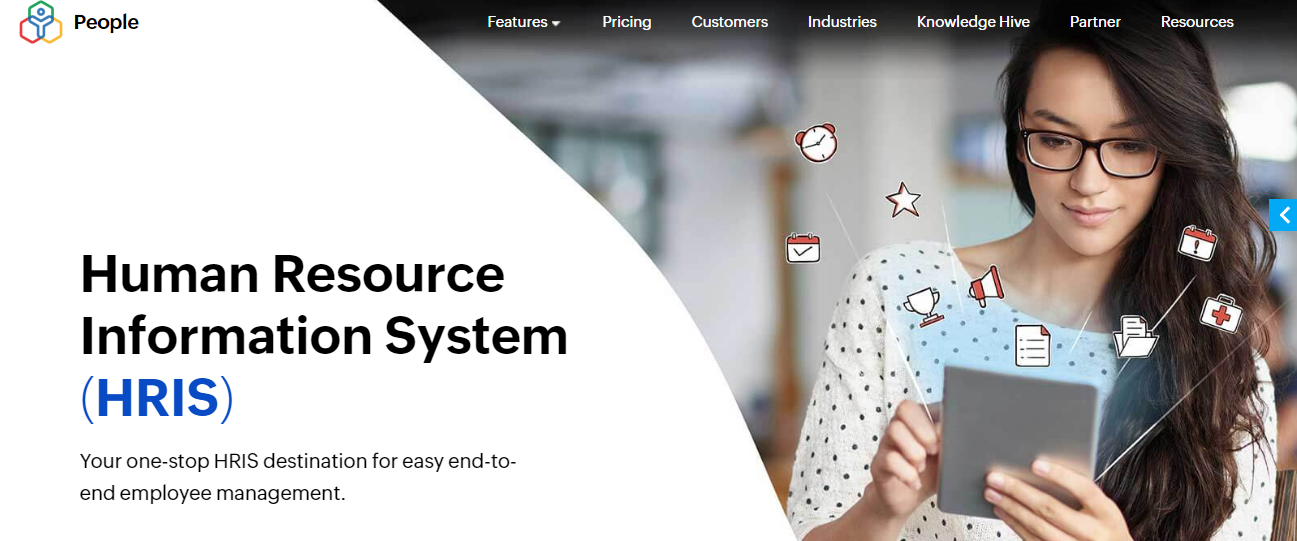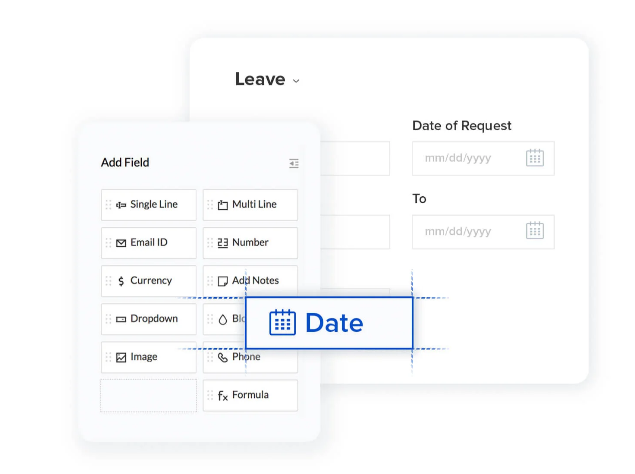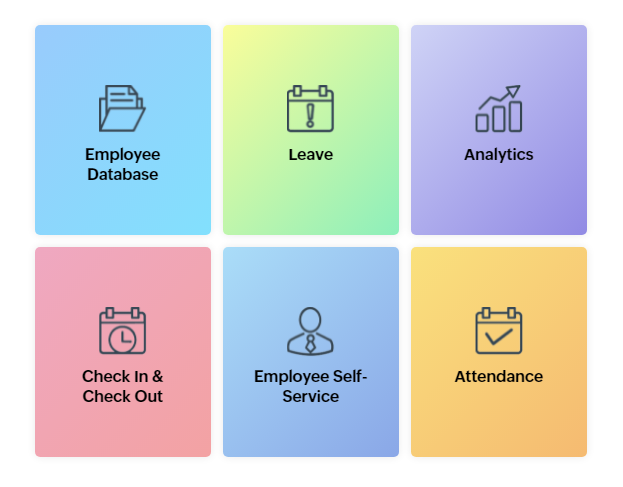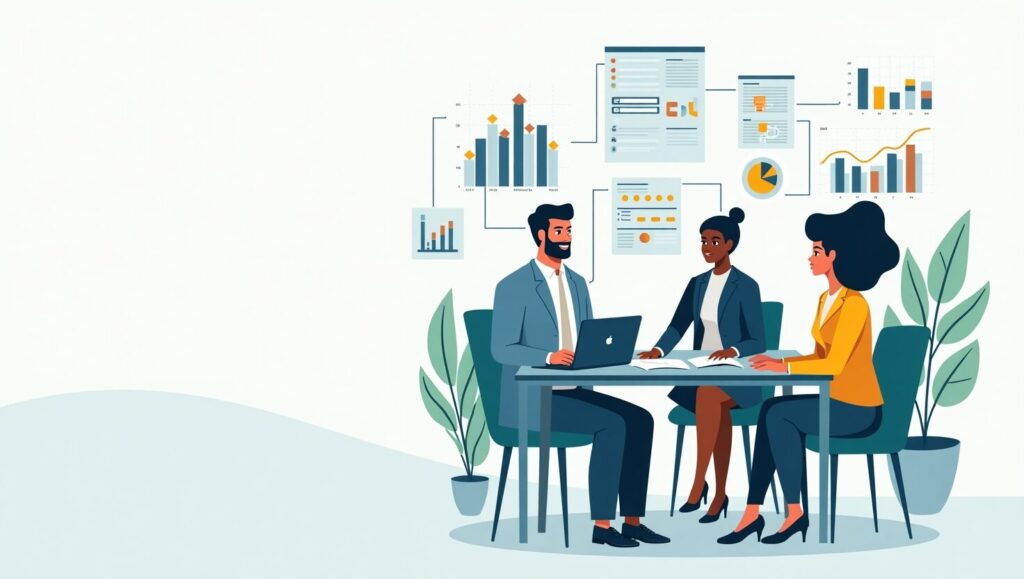What Does HRIS Mean?
HRIS stands for Human Resources Information System. An HRIS involves a central database in which applicants, onboarding, demographics of employees, benefits, compensation and salary information, and time-tracking are all stored. In addition to employee data, it provides a glimpse into hiring trends and retention at your organization.
Over 70% of surveyed businesses found that efficient HR processes were their greatest challenge, according to a report by SHRM. For the remaining 70%, a good HRIS can increase productivity and decrease costs for your people operations team by completing typical functions such as:
- Streamlining employee onboarding
- A centralized database of employee demographics
- Retention and succession planning
- Time-tracking, leave management, and scheduling
- Payroll and benefits administration
- Data analytics for in-depth reporting
- Employee self-service portal
- Org chart
What Does Zoho people HRIS do?
Human resources and information are connected by an HRIS. An HRIS typically consists of HR software that conducts everything electronically and seamlessly – often with just the click of a button.
Human Resource Information System software replaces the need for HR professionals to write, type, or print documents. In the next step, they would determine where it was kept, open a filing cabinet, file the document logically, then lock the cabinet with a key.
It took them time to remember where this information was filed, find it, unlock it, read it, and gather the information it contained. Then, the file was returned, the filing system was closed, and the file was secured once more.
All of this is effectively accomplished by Zoho people’s HRIS. By storing employee records electronically in one place, you’ll be able to access those important documents and information without wasting time (literally and figuratively).
What Benefits Does Zoho people HRIS Offer?
Automation of all those capabilities can have some positive side effects. The following are four of them:
1. Increased productivity
Image- Optimized workflow
Would you like to automate repetitive tasks, improve data quality, and reduce errors in manual processing? Yes, you can, for example, create vacation requests, time and attendance tracking, and accruals workflows quickly with Zoho people HRIS. Automating administrative tasks eliminates manual dependency and greatly reduces the risk of human error. The HR department no longer needs to manually process forms. In the employee portal, employees have individual employee profiles which they can update like contact information, benefits choices, and time-off requests.
2. Improved operational efficiency
Image- Self-service portal
Your HRIS simplifies the process of tracking, updating, and reporting on employees’ data. Zoho People HRIS solutions enable employees to scan hard copy forms into PDF images and upload electronic signatures on important documents within their employee’s digital files. Get all this and more even from your mobile device anytime, anywhere.
3. Informed decision making
Image- On the records off the chart
With Zoho people’s HRIS, you are maximizing employee lifetime value, employee wellbeing, employee productivity, and most importantly, are driving the organization forward. The HR team is able to do more strategic work as a result, thereby helping the organization grow. HRIS reports enable managers and executives to make informed and timely decisions. In addition to showing trends in employee off-boarding, reports on employee retention can also help companies plan for future growth.
4. Boost employee satisfaction
Image- Track and guide employees at each step of HRIS
With an effective and well-managed HRIS, employee experience and employee satisfaction will be enhanced.
95% of respondents to a 2018 report from iCIMS believe that ‘the way an employer treats them as a candidate reflects how they will be treated as employees.’
When it comes to building the first impression of your company on potential employees, it’s crucial to engage them from the very first moment they contact you.
The employee portal is a platform through which employees can learn about the company culture, view their benefit options, and update their information. As a result, there are fewer calls and visits to the HR office, and employees feel more empowered and have shorter wait times. Providing new employees with a stress-free onboarding experience is important, as well. Employee engagement is increased with self-service options.
Why do you need one?
How soon should your business adopt an HR platform? Listed below are a few indications that you might want to upgrade your Human Resources department.
1. You are losing out on great candidates
In today’s business world, all organizations battle talent wars, with many skill sets lacking and unemployment rates at historical lows. Interviews are being conducted simultaneously for multiple companies by job seekers. Candidates must be given time when dealing with them. By using an inefficient hiring system, you will lose top talent to companies running more efficiently.
2. None of your systems “talk” to each other
There are several processes in human resources that require unique solutions. HR needs software for applicant tracking, payroll, benefits, training, and more when onboarding new employees. It is important to track scheduling, timekeeping, performance management, and other successful job-related factors. If your current systems don’t communicate with each other, it’s time to upgrade to an HR platform that supports the entire organization.
3. Spreadsheets are getting too confusing
Many payrolls and human resource professionals rely entirely on spreadsheets. Spreadsheets can’t be relied upon. Despite its organization, spreadsheets become outdated, complex, and prone to data breaches over time as their data becomes overly complex. Most HR systems can accept data imports and keep records for ongoing reporting and tracking.
4. There is a need for custom reporting
Data is at the heart of a lot of what human resources do today. Yet, why do many organizations still work with outdated or clumsy reporting systems? In addition to better reporting, and HR platform can simplify everything a business needs to make critical people decisions.
5. Tasks are getting duplicated
Is there anything more irritating than having to do the same thing on multiple platforms? Human resources professionals and managers frequently have to repeat similar tasks and manually transfer data from one system to another. It is inefficient and is a sign the company is in need of a more modern HR software solution.
Final Words
A good HR system not only saves your HR team valuable time, but also enables them to work smarter, and allows to guide company decision-makers strategically.
Find HRIS solutions like Zoho people that will address your company’s current needs, growth plans, and future business goals and objectives.
